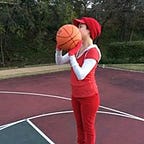Diane Seuss
A Celebration, and a Reckoning
How I came to be connected to Di (as most know her) was a bit unexpected, but I’m never surprised about the different ways we come to know each other in this strange, over-mediatized world. I spoke out about grooming and predatory behavior in the literary community, based on a personal experience, through social media, and Di wrote an incredible thread back, one so profound that I saved it, shared it with my therapist, and returned to it many times over the last two years. It’s not often that a person — a familiar stranger — will validate and support you, especially when you speak out about some of the more harmful aspects of people, and our community, but I was, and continue to be, grateful for Di’s presence in my life. From that moment, she supported me in small ways, helped me find my way back to Poetry again. In the two years since that time, I’ve observed with joy and gratitude (there’s that word again, but it’s the only one that suffices) the work she does in the community, and by community I mean that much wider than just the world of poetry that she is most often associated with, but especially with writers who are just making their way through the world.
I’d always known that I wanted to publish a review of frank: sonnets, but when Diane Seuss was awarded the 2022 Pulitzer Prize in Poetry, the 2021 National Book Critics Circle Award for Poetry, the 2022 PEN/Voelcker award for Poetry Collection, and the 2021 Los Angeles Times Book Prize for Poetry, I thought perhaps there was more than just a review worth including.
I first crowdsourced on Twitter and Facebook to see who was interested in publishing an interview with Diane, and I was delighted at just how many people connected with me. It was from that response that I decided only the most expansive attention on Diane would do, and thus, here you have it: the introduction to our column on Di’s work and importance in our community, which I’ve decided to title Diane Seuss: A Celebration, and a Reckoning.
But, before I publish the first piece, let’s hear from Di herself:
For Anomaly:
I am so moved by the willingness of other writers to take my work seriously and to consider it in the pages of Anomaly. I am galvanized by the magazine’s staff, and vision, and by its name. Anomaly. For I was one, and continue to be one. I was, early on, an incongruence in my home landscape. On its roads, both dirt and paved. A weirdo in college: I wore a shower curtain as a cape long before such things were on the radar. In New York City, I was an aberration. Midwestern. Rural. I pronounced water wahhhhter. Milk mehhhlque. As a college professor on the campus of a small, rigorous, liberal arts school, the one I attended as a student, I was “wrong” in so many ways. Untenurable, due to my wrong degree. Dressed wrong. Acted wrong. Taught wrong, but it worked. I said “good” instead of “well.” You get the picture. Even now, as a poet, I am an anomaly. Chronologically un-young. Physically un-curated. A writer from a flyover state. As was said of Theodore Roethke: Dough-faced. Yet here I am, proudly wearing the tag ANOMALY.
The thing that has brought me the most pleasure in the response to frank: sonnets, has been the overwhelming support from its readers. And not just support, but connection, frank as a shared experience, a united vulnerability. I’m not sure why, and I dare not breathe too hard on it lest it blow away, but I have been so heartened by this sense of collaboration in the making of and responding to these poems. This has included photos of the book in places known and unknown all over the globe. Frank at the Louvre. Frank on a slot machine. Frank in the window of a train nearing Vienna. On Keats’ death bed, and at his grave. At Dick’s restaurant in Las Vegas, New Mexico. Set upright on the flexed, tattooed bicep of a writer friend I call “dude.” You name it, he has been there, even though I have been sequestered at home for the last years, trying, like many of us, just to stay alive. He, the book, has been my emissary. I look forward to reading all of the responses to him and to all the selves, friends, lovers, family members, who live within his pages.
— Diane Seuss
